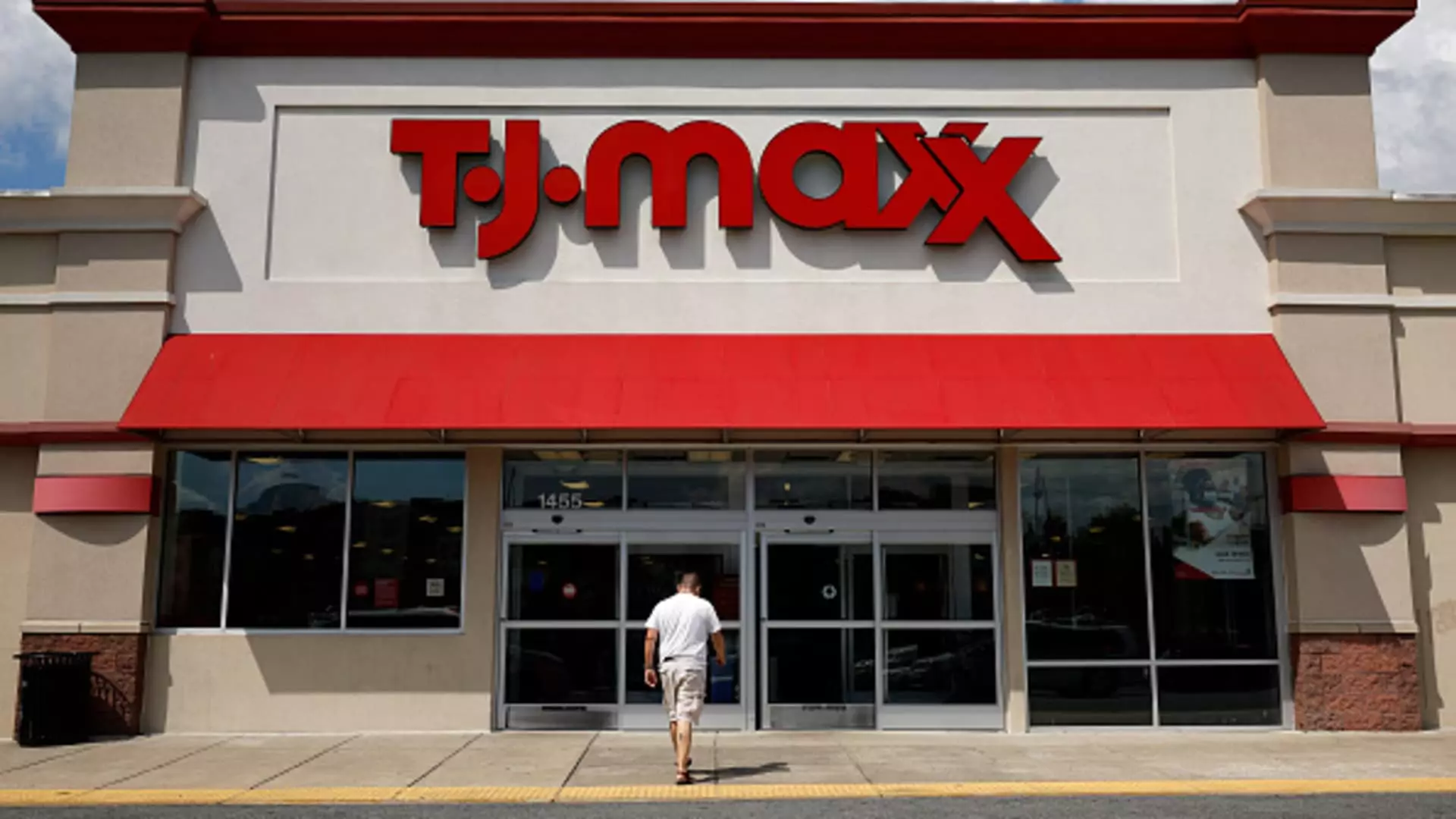TJX Companies has recently celebrated an encouraging burst of financial headlines: surpassing Wall Street expectations, raising earnings guidance, and witnessing a marked increase in share price. On the surface, one might interpret these developments as a robust validation of the company’s business model and its strategic agility amid turbulence. However, a critical examination reveals that these seemingly stellar results are, at best, a temporary mirage, masking underlying vulnerabilities in a macroeconomic environment fraught with uncertainties. The rosy outlook, driven by a blend of aggressive guidance revisions and market optimism, deserves skepticism—particularly as it rests on assumptions that are increasingly shaky.
The company’s assertion that it can offset rising tariff costs presumes a near-permanent status quo in trade policy. This assumption is fundamentally flawed. Tariffs and global trade tensions are inherently unpredictable and subject to drastic shifts, especially under a new political landscape that seems increasingly volatile. By projecting stability in tariffs, TJX risks overestimating its capacity to navigate a complex and volatile international trade environment, potentially leading to inflated expectations among investors and consumers alike.
Questionable Optimism in Consumer Behavior
TJX’s reported increases in customer transactions and comparable sales paint a picture of a resilient consumer. Yet, this narrative warrants a deep dose of skepticism. An economic reality characterized by persistent inflation, rising interest rates, and uncertain job markets suggests that consumer spending might be more fragile than it appears. Retailers like TJX tend to perform well during times of economic downturn because consumers gravitate toward discounted and off-price shopping. But there’s a limit to this resilience—dwindling disposable income, increased credit burdens, and a possible shift in consumer priorities could quickly undermine these gains.
Furthermore, TJX’s success is partly predicated on consumers’ continued appetite for bargain hunting, which is inherently unsustainable as a long-term growth engine. The market’s fixation on short-term sales figures overlooks the danger of deteriorating consumer sentiment that could become acute once economic pressures intensify. The company’s confidence, bolstered by a strong second quarter, may thus be overly optimistic rather than a reflection of genuine financial health.
Market Sentiment and Structural Vulnerabilities
The recent rally of TJX shares by over 11% this year—an impressive feat—raises questions about the sustainability of this momentum. Market optimism often fuels share price gains, but it can also foster complacency. The recent boost seems driven by a belief in TJX’s strategic advantage over traditional department stores, particularly due to their procurement model that allows them to buy excess inventory post-importation. While this provides a short-term edge, it also exposes TJX to risks of overstocking or an abrupt shift in supply chain dynamics.
Moreover, the broader retail landscape is shifting rapidly. E-commerce continues to encroach on brick-and-mortar stores, and consumers are becoming more discerning about value and sustainability, which might not favor the off-price model as much as current figures suggest. The company’s presumed agility could be overstated, and its ability to maintain profit margins amid inevitable inflationary pressures remains questionable.
Overreliance on Short-Term Indicators
Ultimately, the recent earnings reports and upward revisions give a misleading sense of confidence. They lean heavily on recent performance metrics that are unlikely to be sustainable in the long term. The assumption that tariffs will remain in place and that consumer spending will stay resilient ignores the multitude of structural challenges facing the retail sector—rising costs, changing consumer priorities, geopolitical tensions, and an unpredictable global economy.
In the end, TJX’s current success, while impressive, exemplifies the dangers inherent in overconfidence fueled by short-term victories. Investors, analysts, and consumers alike should remain vigilant and critically assess whether the company’s apparent strength is built on a firm foundation or simply a fleeting illusion of stability amid stormy economic currents.

